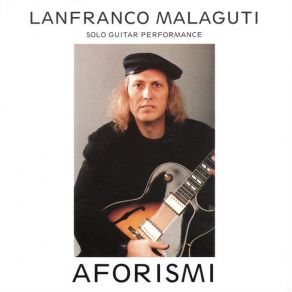Aforismi
Download links and information about Aforismi by Lanfranco Malaguti. This album was released in 1996 and it belongs to Jazz genres. It contains 18 tracks with total duration of 54:43 minutes.

|
|
|---|---|
| Artist: | Lanfranco Malaguti |
| Release date: | 1996 |
| Genre: | Jazz |
| Tracks: | 18 |
| Duration: | 54:43 |
| Buy it NOW at: | |
| Buy on iTunes $9.99 | |
Tracks
[Edit]| No. | Title | Length |
|---|---|---|
| 1. | Aforisma No. 1 | 2:09 |
| 2. | Aforisma No. 2 | 1:37 |
| 3. | Aforisma No. 3 | 2:25 |
| 4. | Aforisma No. 4 | 2:32 |
| 5. | Aforisma No. 5 | 1:30 |
| 6. | Aforisma No. 6 | 2:07 |
| 7. | Aforisma No. 7 | 2:48 |
| 8. | Aforisma No. 8 | 1:56 |
| 9. | Aforisma No. 9 | 3:58 |
| 10. | Aforisma No. 10 | 3:42 |
| 11. | Aforisma No. 11 | 4:02 |
| 12. | Aforisma No. 12 | 5:13 |
| 13. | Aforisma No. 13 | 4:48 |
| 14. | Aforisma No. 14 | 3:24 |
| 15. | Aforisma No. 15 | 5:33 |
| 16. | Aforisma No. 16 | 2:00 |
| 17. | Aforisma No. 17 | 2:50 |
| 18. | Aforisma No. 18 | 2:09 |
Details
[Edit]Italian guitarist Lanfranco Malaguti is one of a handful of six-stringers on the scene who can walk with his feet firmly in both camps: the avant-garde and the canonical. This 1997 solo guitar date is Malaguti debuting a single 18-movement piece for multiple guitars recorded over two days. "Aforisma" is a journey through the guitar as practiced by Malaguti. In "No. 1" His plectrum effects boxes and tape delays are turned on minimally to walk through the construction of staggered scalar devices in interval. In "No. 2" he uses Les Paul's arpeggio system and multi-tracking in brief, fiery bursts of single-string elegance. "No. 3" is a shifty and angular little swing number that borrows from the blues without being one. All of the tracks on Aforismi are indicative of influences and techniques learned and built upon before being literally mutated into a form of Malaguti's own signature. The later pieces reveal his love for the pastoral stylings of guitarists like Martino and Farlow, though the pieces themselves don't sound anything like them. The open chordal studies on "No. 16," the riveting swing in "No. 12," and the ostinati in "No. 15" all lend themselves well atop the multi-tracked environment, especially since precision and timing are two of Malaguti's strongest traits. Nothing feels stacked or mechanized, but merely placed in a sequence and played accordingly. The lone ringing guitar in "No.18" is a lovely song that lilts and lulls, shimmering across the strings as Malaguti's fingers slip so languidly across the fret board. It's a whispering finish to a relaxed yet dramatically sophisticated recording. This is Malaguti's opus to be sure.